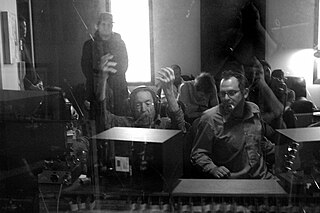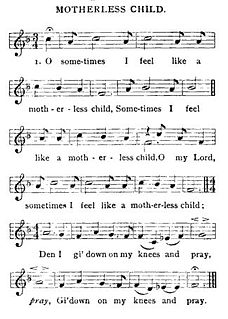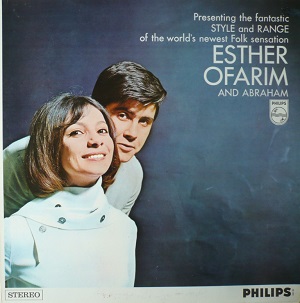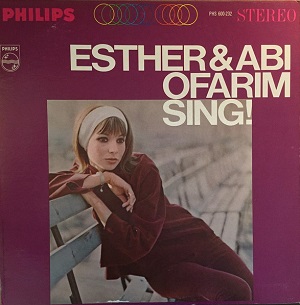
Esther Zaied, better known by her married name Esther Ofarim, is an Israeli singer. She came second in the 1963 Eurovision Song Contest with the song "T'en va pas", representing Switzerland. After marrying Abi Ofarim in 1958, she was half of the husband-and-wife folk duo Esther & Abi Ofarim in the 1960s. After the couple divorced, she undertook a successful solo career.
"The Skye Boat Song" is a late 19th-century Scottish song recalling the journey of Prince Charles Edward Stuart from Benbecula to the Isle of Skye as he evaded capture by government troops after his defeat at the Battle of Culloden in 1746.

"Dirty Old Town" is a song written by Ewan MacColl in 1949 that was made popular by the Dubliners and has been recorded by many others.

Donald William 'Bob' Johnston was an American record producer, best known for his work with Bob Dylan, Johnny Cash, Leonard Cohen, and Simon & Garfunkel.
"Bird on the Wire" is one of Leonard Cohen's signature songs. It was recorded 26 September 1968 in Nashville and included on his 1969 album Songs from a Room. A May 1968 recording produced by David Crosby, titled "Like a Bird", was added to the 2007 remastered CD. Judy Collins was the first to release the song on her 1968 album Who Knows Where the Time Goes. Joe Cocker also covered the song on his second studio album the following year.

Abi Ofarim, born Avraham Reichstadt was an Israeli musician and dancer. He is better known for his work in the 1960s as half of the duo Esther & Abi Ofarim with his then-wife Esther Ofarim.

Esther & Abi Ofarim were an Israeli musical duo active during the 1960s, consisting of husband and wife Abi Ofarim and Esther Ofarim. They enjoyed particular success in Germany. They had hits in Europe with their songs "One More Dance," "Morning of My Life," and "Cinderella Rockefella."
Michael Ward Settle is an American songwriter, journalist, broadcaster and singer.

"Sometimes I Feel Like a Motherless Child" is a traditional Negro spiritual. It dates back to the era of slavery in the United States. An early performance of the song dates back to the 1870s by the Fisk Jubilee Singers. Commonly heard during the Civil rights movement in the United States, it has many variations and has been recorded widely.
"Tomorrow Is a Long Time" is a song written and recorded by Bob Dylan. Dylan's version first appeared on the album Bob Dylan's Greatest Hits Vol. II compilation, released in 1971. It was subsequently included in the triple LP compilation Masterpieces.
"What Have They Done to the Rain" is a song by Malvina Reynolds.

Golden Apples of the Sun is an album by American folk singer Judy Collins, released in 1962.
"Freight Train" is an American folk song written by Elizabeth Cotten in the early 20th century, and popularized during the American folk revival and British skiffle period of the 1950s and 1960s. By Cotten's own account in the 1985 BBC series Down Home, she composed “Freight Train” as a teenager, inspired by the sound of the trains rolling in on the tracks near her home in North Carolina.
"Le Déserteur" is a famous anti-war song written by the French poet and musician Boris Vian. It was first performed on the day of the decisive French defeat in the First Indochina War on May 7, 1954.
"Someday Soon" is a song composed by Canadian singer-songwriter Ian Tyson. He recorded the song with his wife, Sylvia Tyson, as the duo Ian & Sylvia in 1964. Although this version was not released as a single, the song has been recorded by Judy Collins, Moe Bandy and Suzy Bogguss, all of whom had chart success with it. Collins's version was issued as a single to the pop format, while Bandy's and Bogguss's versions were hit singles on country music radio.
Sing Hallelujah may refer to:

"One More Dance" is a song written by C. C. Carter. It is a satirical song about cynical lovers. It was first recorded by South African singer Miriam Makeba with Charles Colman for her debut album Miriam Makeba (1960). Makeba performed the song live with American singer Harry Belafonte at Carnegie Hall in 1960. Their duet was released on his album Belafonte Returns to Carnegie Hall (1960). Israeli folk duo Esther & Abi Ofarim recorded popular renditions of the song in different languages.

Esther Ofarim and Abraham is the American debut album by Israeli folk duo Esther & Abi Ofarim. It was released on Philips Records in 1963. The album was titled Songs Der Welt in Germany.

2 In 3 is an album by Israeli folk duo Esther & Abi Ofarim. It was released on Philips Records in Europe in 1967. This is their most successful album, containing their hits "Cinderella Rockefella" and "Morning of My Life."

Sing! is an album by Israeli folk duo Esther & Abi Ofarim. It was released on Philips Records in 1966. The album was released as The New Esther & Abi Ofarim Album in the UK, Sing Hallelujah! in the Netherlands, and Das Neue Esther & Abi Ofarim Album in Germany.












